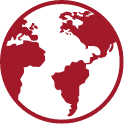The world’s oceans, our planet’s largest ecosystem, are under threat. Wildlife populations are declining at alarming rates. Over 30 percent of global fish stocks are currently overfished, and more than 30 percent of coral reefs and marine mammals are under threat–many of them considered endangered, threatened, or protected.
The fishing industry operates in a challenging environment – conditions can be hazardous, being at sea creates a barrier to enforcement and oversight. The UN estimates that around 600 million people are dependent on fisheries and aquaculture for their livelihoods.
Transforming the sector towards a sustainable blue economy is essential because aquatic systems can potentially support many more people, provide a low carbon protein and contribute to our future food security. This must be achieved while preserving natural resources and the ecosystems that sustain them.

King Oscar sources a wide range of wild caught fish species from around the world including anchovies, cod, herring, mackerel, sardines, sprats, and tuna. It is our aim that by 2030, all of these species are sourced from stocks that are managed within biologically sustainable levels or engaged in an improvement program.

Additionally, we are committed to ensuring that all the fishing vessels we source from are implementing best practices to prevent illegal, unreported and unregulated (IUU) fishing and modern-day slavery.

For some of the stocks King Oscar relies upon, the management requires improvement. For example, mackerel and herring from the Northeast Atlantic was certified to the MSC standard until 2019, which was lost due to overfishing relative to the scientific advice. In response, Thai Union was one of the founding members of the North Atlantic Pelagic Advocacy Group (NAPA) – a Fishery Improvement Project (FIP) that aims to persuade the various coastal and fishing states involved in the fishery to establish quotas in line with the scientific advice.
King Oscar supports the aims of NAPA and asks all parties involved in the management of the fishery to work together to share quotas fairly and in line with scientific guidance. King Oscar will also explore the development of further FIPs across its key sourcing regions as part of its work to meet the SeaChange® 2030 target for responsible wild caught seafood.
Key species and their sources for King Oscar


KING OSCAR'S APPROACH TO AQUACULTURE
Within Thai Union’s SeaChange® 2030 program, we have also established our ambition for responsible aquaculture. By 2030, we want all farmed cod and salmon in King Oscar’s supply chain to be produced responsibly, meeting industry credible standards, or in an improvement program that minimizes impact on the surrounding ecosystem. We also want 100% of the farms we source from to be safe and decent workplaces by 2030. The farmed cod that we source for our cod liver products and cod liver oil production has zero use of anti-biotics and has a very low feed conversion ratio of around i.e. 1.5g of feed required for 1g of fish reared.



